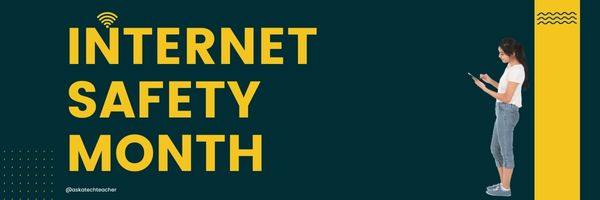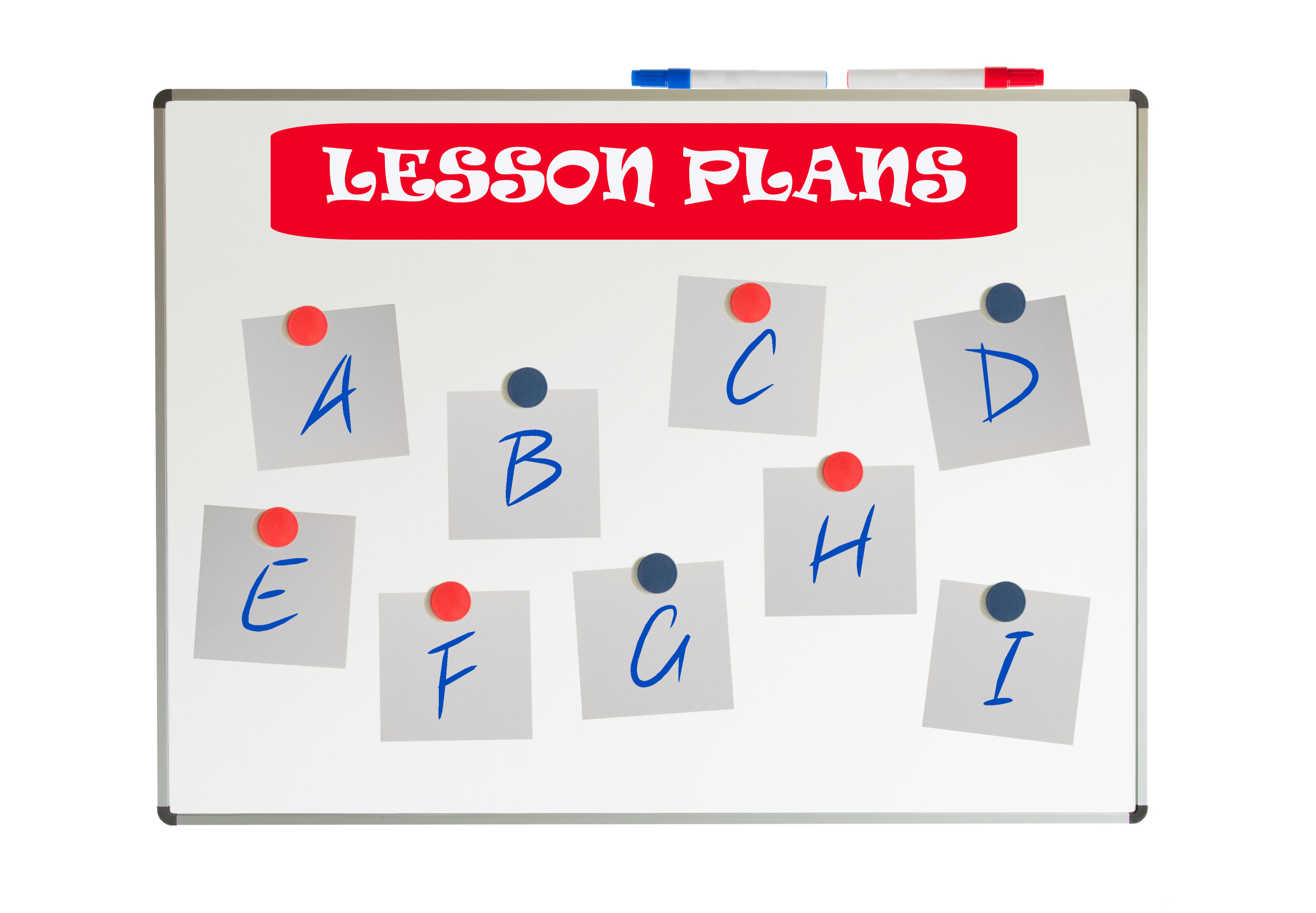June is National Internet Safety Month, thanks to a resolution passed in 2005 by the U.S. Senate. The goal is to raise awareness about online safety for all, with a special focus on kids ranging from tots to teens. Children are just as connected to the Internet as adults. This is a great list of internet cautions I got from an online efriend a few years ago. I reprint it every year because it covers all the basics, avoids boring details, and gives kids (and adults) rules to live by:
Not everything you read online is true
It used to be anything we read in print was true. We could trust newspapers, magazines and books as reliable sources of information. It’s not the same with the web. Since anyone can become published, some of the stuff you’re reading online isn’t true. Even worse, some people are just rewriting stuff they read from other people online, so you might be reading the same false information over and over again. Even Wikipedia isn’t necessarily a reliable source. If you’re researching something online, consider the source. Some poorly written, random web page, isn’t necessarily a good source. However, if you find a .gov or .org site, the information has a better chance of being true. Always look at who owns the website and whether or not they have an agenda before considering whether or not certain information is true.
Not everyone you meet online are who they say they are
This is the hard part because we want to trust our friends, even our online friends. The truth is, some of the people you meet online are lying about who they really are. Sometimes adults pretend to be kids and kids pretend to be someone else. They do this for a variety of reasons; grownups might want to try and have sex with kids or frenemies might want to act like friends to get information on someone they want to bully at school or online. Unless you know someone very well and can verify their identity, don’t trust that everyone who you speak to online are who they say they are.
Some people who are pretending to be kids really aren’t. There are grownups who pretend to be kids so teens and kids won’t get creeped out talking with them. This is never a good thing. Most of the grownups who are looking to talk to kids are looking for sex. Parents need to monitor their kids’ friends list and ask questions about the friends they don’t know. It’s more prevalent than you think and it COULD happen to you.
Not everyone you “friend” is your friend. Just like in the real world, not everyone you know is a friend. Think long and hard about the people you’re “friending.” Drama doesn’t just stay in school anymore, now it follows you home thanks to the social networks. Plus, stuff y
ou share with what you think is a private social networking page is a simple cut and paste away from being broadcast all over school. Also, be careful when friending friends of friends and friends of friends of friends. You don’t really know these people, why are you giving them access to your private life? Sometimes, it’s like giving them the keys to your house.
Taking someone else’s writing and using it as your own is stealing
If you cut and paste something you found online and pass it off as your own it’s a copyright violation. Plain and simple, it’s plagiarism. There’s some sort of silly belief going around that web content is there to use whenever we want, and that’s not true at all. Never cut and paste someone else’s article, blog post or other content word for word. If you’re quoting a paragraph or line, always offer a link with attribution. That is, give credit to the original author.
Every single thing you put online has the ability to stay there for ever
Even if you close up your Facebook account or take down your blog or website, someone can still find your stuff and use it. There are tools like the “Wayback Machine” which can bring back web pages that were taken offline years ago. Also, friends and former friends might take screenshots or cut and paste your embarrassing status updates, only to use them later to embarrass you.
Online bullying hurts as much as offline bullying
People get bullied online and offline. That’s why it’s important for parents to monitor their kids’ social networking accounts. If your kids are being abused or bullied, you can help. You don’t want to learn about a serious situation when it’s too late. And kids don’t want to tell their parents about bullying episodes because they sometimes feel they’re to blame for saying the wrong thing or being socially inept. No one deserves this. If parents or kids are being bullied, the first step to take is to ban the bullies from their social networking accounts. Then tell the authorities.
People will gossip if you give them something to gossip about. No one wants to be gossiped about, yet every day they give out gossip-worthy tidbits. Underage girls pose provocatively and post the images to their Facebooks, boys talk about who they hooked up with at a party. Kids can’t get away with the same things parents might have in the past because it all has the ability to end up online. Don’t give anyone anything to gossip about – online or off. Also? If the proof is online, you can’t deny something happened and you lose all credibility.
Sometimes the best thing you can do is turn off your computer
Why would you want to avoid drama at school, but come home, go online to take part in more drama? Also, if someone says something online you don’t like, or behaves in a way that makes you uncomfortable, there’s no law saying you have to respond, or even stay online. Turn off your computer and do something less stressful. Enjoy the people and things that make you happy.
The best of the world is happening offline. When you log off your laptop, you can enjoy a world of books, sports and sunshiney days. You can go to the movies or skating rink with your friends or cook a gourmet meal with your family. This is real life. This is where the fun is.
If online drama is affecting your offline world, it’s time to unplug for a while. If all you can think about is your online interactions, you need to get offline pronto. If the things you say and do and people you’re talking with are keeping you up at night, and causing you to lose focus on your classes or other commitments, it’s time to spend less time online. Kids don’t need grownup sized stress. I know this sounds too simple, but if you spend less time online, those online problems will go away.
Facebook isn’t life
There’s a whole big world happening outside. It goes beyond status updates, duckfaces, and LOLs. In the real world people are enjoying the weather, going shopping, playing sports, and enjoying real time conversations. That’s real life. Unless it’s your job or for your job, (and even if it is) the Internet should be a distraction or an extracurricular activity, not the place where you spend all your time. If what’s happening on Facebook is keeping you from your family, your schoolwork or impacting health or sleep habits, it’s become a problem.
You don’t have to friend everyone who asks. I know we teach our kids to have good manners, and to not intentionally hurt anyone’s feelings. However, one thing we should also talk about is how we should take great care in choosing friends – both online and off. We wouldn’t walk up to Joe Off the Street and tell him what town we live in or what we did three hours ago, but that’s what happens when we friend people we don’t know. We shouldn’t have to worry about hurting someone’s feelings by not allowing them access to our lives and if it’s someone who we don’t choose to associate with offline, we certainly shouldn’t be opening ourselves up to them online.
Don’t allow your friends to share your personal details without permission
Sometimes online friends will post things on another person’s wall or tag friends in status updates that aren’t intended to cause trouble but can. For example they might mention a hookup or a date to cut school. They might mention a test result the recipient didn’t want getting out or tease about something embarrassing. Make sure friends are respectful of privacy, if they’re not they should be dropped from social networking circles.
When you post your phone number or address online, you’re inviting bad things to happen. Cell phone numbers, land lines, addresses, and even email addresses aren’t for public consumption. Be VERY, very, VERY careful when giving these out. First, many people online aren’t who they say they are at all. Bad people exist and it CAN happen to you and your family. Second, you’re opening yourself up to scammers, stalkers, identity thieves, perverts, robbers and other unsavory types. There’s a reason so many people keep their phone numbers unlisted. So if you wouldn’t put it in a telephone book, why would you post it online? Don’t give out your personal details to people you don’t know very well. Not unless you want to open up a whole Pandora’s Box of issues.
Sharing passwords never leads to anything good. So here’s what happens when passwords are shared: Friends share it with other friends. Or they use your passwords to troll or use abusive words in your name directed at other people. Or they read your email or private messages. Or they post things you don’t want posted. Or they use your PayPal or credit cards to do a little shopping. And then they tell the whole world about it. Stop saying they won’t because they will.
Your personal information is just a fight away from becoming public. Childhood and teen relationships are delicate. Kids and teens aren’t always mature enough to handle arguments and fights. Say the wrong thing or argue with the wrong person and dirty laundry becomes public. People act in the heat of anger and actions taken online can’t be taken back.
There’s no such thing as privacy online
Facebook and some other social networks may seem private because you’re in control of who you let view your status updates. However, that means nothing. Everything you post is only a cut and paste away from the whole world seeing it. Everything you post on a social network has the ability to show up somewhere else. Someone you think you trust may be sharing your private details with others, and yes, it DOES, absolutely, without a doubt, happen. A good rule of thumb is to never post anything online you wouldn’t want to see splashed across the headlines of the New York Times.
People who ask you to keep secrets are your friends. Anyone who tells you to keep secrets from your parents aren’t looking out for your best interests. Ever. There is no reason for anyone to ever tell anyone to keep something from their folks, unless they’re up to no good. There’s no way to justify it. If someone is asking you to keep a secret, they’re asking you to do something you shouldn’t be. They’re inviting you to be a partner in crime and there may be very real and serious repercussions if you accept.
It’s not a violation of privacy or lack of trust for parents to view kids’ Facebook pages. Parents, our kids’ well being is our responsibility. As parents, it’s up to us to know what our kids are doing online and off. We check to see who they’re going out with or how they’re spending they’re time offline, so why aren’t we doing the same when they’re on the web. It’s not disrespecting a kids’ privacy to have access to their email or Facebook accounts. It’s good parenting.
***
Want this all in a poster? Here you are:
Jacqui Murray has been teaching K-18 technology for 30 years. She is the editor/author of over a hundred tech ed resources including a K-12 technology curriculum, K-8 keyboard curriculum, K-8 Digital Citizenship curriculum. She is an adjunct professor in tech ed, Master Teacher, webmaster for four blogs, an Amazon Vine Voice, CSTA presentation reviewer, freelance journalist on tech ed topics, and author of the tech thrillers, To Hunt a Sub and Twenty-four Days. You can find her resources at Structured Learning.








































Great reminders as always, Jacqui.
I am constantly amazed how little attention people pay to online safety. I just read a longish article from a woman who should have known better and still got caught. Yikes!
Yikes indeed!
That is great advice. Spot on! Ironically the first day of Internet Safety Month I got a phishing email from someone pretending to be my bank. I reported it.
I’ve noticed on Facebook that it is especially gen-X/boomer men like myself who fall for fake memes. It happens all the time while younger people laugh it off. As long as they support your pre-existing belief some people just blindly believe it and share and then they can’t be reasoned with. Even if the source is a known fake meme factory, no credible source is reporting it, and snopes.com report it as false, they still refuse to acknowledge it might be wrong. Arguing with people my age about fake memes have gotten me blocked by long time friends.
There is so little I believe anymore that I read online. Sad. Rather than increasing communication, it seems to be increasing distrust.
Yes unfortunately you are right. Also right after I wrote the comment above I got another phishing email, this time about Paypal. Someone claimed my paypal account (which works fine) had been locked and asked me to login to a special more secure place using my login credentials. It was not from Paypal. They try.